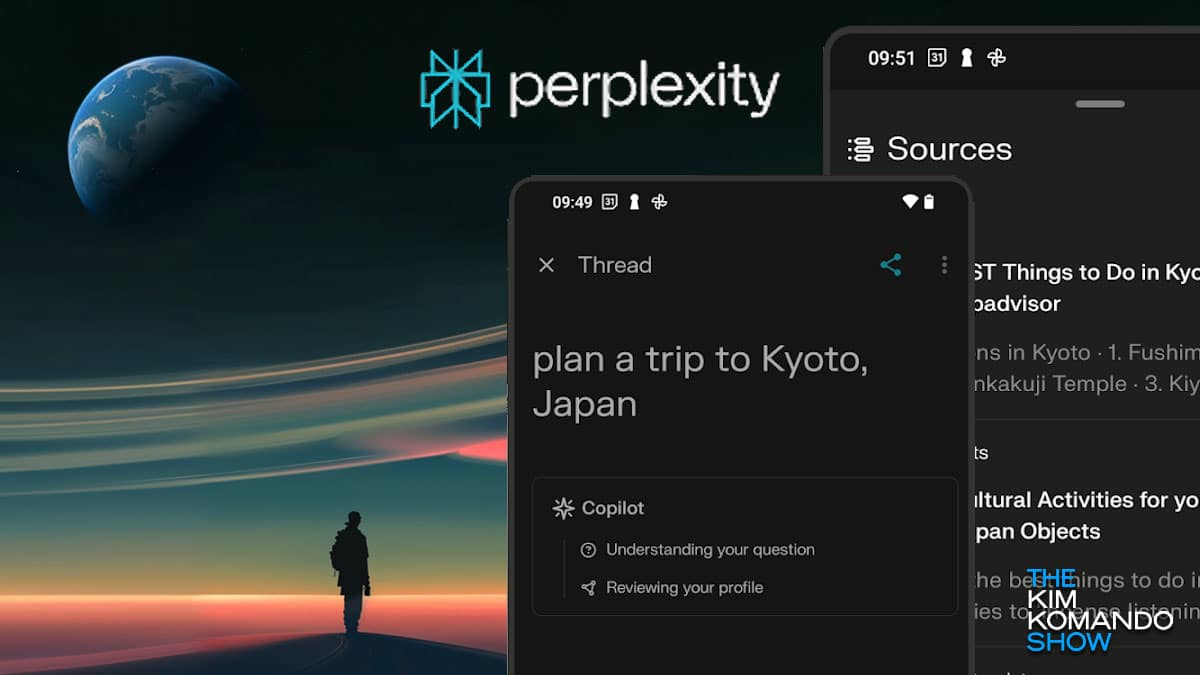Perplexity AI, founded just two years ago in 2022, is making waves in the technology world with plans to secure a valuation of around $9 billion in its latest funding round. This astronomical figure highlights the tremendous demand for advanced artificial intelligence platforms that push the boundaries of human-like search and interaction. Perplexity AI’s innovative approach to AI-powered search, which blends chatbot responsiveness with refined retrieval capabilities, has positioned it as a prominent contender in the space. With major financial players eyeing investment, the startup has managed to distinguish itself in a sector dominated by more established tech giants.
Perplexity AI’s investors reads like a who’s who of tech royalty, and include such heavy weight names as Jeff Bezos (founder of Amazon), Susan Wojcicki (who was CEO of YouTube), Garry Tan (CEO of Y Combinator), and Dylan Field (Co-founder and CEO of Figma). Then there are the VCs and companies that have invested in Perplexity AI including IVP who led their Series B funding round, NEA who invested in their seed and Series A round, and Bessemer Venture Partners, Nvidia, Databricks, and SoftBank who invested in them in 2024 at a $3 billion dollar valuation – so that investment is looking pretty good since they’re already looking since the valuation of Perplexity AI has tripled, and they’re not looking at a 200% return on their investment on paper.
The race for innovation in AI-driven search tools has been heating up, turning the field into the new holy grail of technological advancement. This evolution reflects a shift in how information is consumed and processed, driven by users’ needs for conversational search results, and desire for instantaneous results. The global AI market has been growing rapidly, with a projected valuation exceeding $1.8 trillion by 2030. Within this market, search technologies that can mimic human thought processes and offer contextualized answers have seen surging interest, especially as the limitations of traditional search engines become more apparent.
Perplexity AI’s timing could not be better, as AI chatbots infused with retrieval skills are carving out a unique niche. This demand has grown out of the limitations of conventional search engines, which often fail to deliver nuanced, context-aware results. Unlike traditional tools, advanced AI-powered search platforms can handle multifaceted questions and learn from interactions, making each engagement more relevant. The rush to invest in this technology underscores the belief that future search systems will be defined not just by the depth of their databases but by their ability to communicate, contextualize, and synthesize information on par with human intelligence.
The rapid ascent of Perplexity AI is part of a larger competitive landscape that includes some of the most influential names in tech. OpenAI, known for its groundbreaking work with the ChatGPT series, has taken a significant step into the AI search market with its own chatbot-powered search tool, SearchGPT. This move puts OpenAI directly at odds with Perplexity AI, even as both companies benefit from the sector’s burgeoning growth. OpenAI’s integration of natural language processing into search functionality provides robust conversational interactions, setting a high bar for emerging competitors.
Other major players are also pushing into this space. Google, which has dominated online search for decades, has not rested on its laurels. Its experimental AI platform, Bard, aims to bring more advanced search experiences to users through machine learning that refines results based on specific queries and user history. Microsoft, through its partnership with OpenAI, has incorporated elements of ChatGPT into Bing, aiming to recapture market share by offering more dynamic and intuitive search capabilities. Each competitor’s foray into this rapidly evolving sector emphasizes the strategic importance of conversational AI search as the next frontier.
The rise of AI search tools also aligns with increasing investments and valuations across the sector. OpenAI, for instance, has reached a valuation surpassing $157 billion, thanks largely to the potential of its AI innovations and strategic partnerships. The competitive pressure has pushed startups like Perplexity AI to differentiate themselves through speed, interaction quality, and proprietary algorithms that strive to deliver unmatched search relevance.
Perplexity AI’s valuation of $9 billion is particularly striking given its recent inception. This milestone suggests not only confidence from investors but also a keen recognition of its technical capabilities and market positioning. The company’s technology leverages cutting-edge AI frameworks to deliver real-time responses that go beyond basic query handling, integrating advanced machine learning to improve with each user interaction. With funding potentially reaching several hundred million dollars, Perplexity AI is poised to bolster its R&D and scale operations to better compete with more established industry titans.
The stakes for Perplexity AI and its competitors are immense. In a world increasingly reliant on digital knowledge, being at the forefront of AI search innovation could mean capturing a significant share of a multi-billion-dollar market. Analysts note that as AI continues to influence every aspect of tech development, from cloud services to data management, companies that lead in this realm will shape user behavior, consumer expectations, and even advertising paradigms.
Despite the intense competition, the pursuit of AI search supremacy is far from a zero-sum game. The influx of new technologies not only fosters innovation but also broadens the overall landscape, creating a richer ecosystem for users and businesses alike. Investors, tech observers, and consumers are watching closely as Perplexity AI, despite its relatively brief history, positions itself for growth that could redefine the contours of how search engines interact with humans.
Perplexity AI’s push for a $9 billion valuation in its latest funding round, only two years post-founding, serves as a testament to how quickly AI-driven startups can scale in today’s environment. The company’s commitment to refining search experiences and the significant investments it seeks underscore the technology’s promise and the profound shifts underway in the digital knowledge domain. As AI search engines evolve, the future of how information is accessed and understood may well rest in the hands of agile innovators like Perplexity AI.
Perplexity AI seeks valuation of about $9 billion in new funding round

